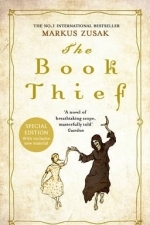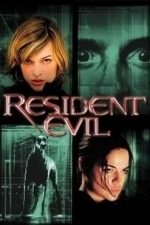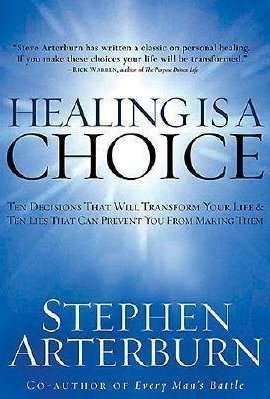Whatchareadin (174 KP) rated The Book Thief in Books
May 10, 2018
Liesel Meminger is 9 years old and it is 1939. Her mother is taking her and her brother to live with another family where they will be safe. Unfortunately, the brother doesn't make it. Liesel takes only two things with her to her new home; the memory of her brother and her first stolen book, <u>The Gravediggers Handbook</u>.
When Liesel arrives on Himmel street in Molching, Germany, she is greeted by Rosa and Hans Hubermann. They welcome her into their home and she immediately is to call them Mama and Papa. Even though Liesel is illiterate, Hans works with her every night when she is awakened with nightmares of her brothers death. They retreat to the basement to do their reading.
For 5 years, Liesel lives on Himmel street during one of the most treacherous times in Germany. She makes friends and enemies along the way and steals 5 more books.
First I would like to thank [a:Victoria Dougherty|8054971|Victoria Dougherty|https://d.gr-assets.com/authors/1394817245p2/8054971.jpg]for recommending this book to me. I have always been a fan of historical fiction and this book did not disappoint in any way, shape or form. I thoroughly enjoyed this story. I could see myself on Himmel Street with Liesel. I could see what she could see and I could feel the torment she went through. I thank God every time I finish a book like this because I live in a place and a time where these things aren't a constant worry for me. I don't have to have my possessions packed and ready to go when I raid sirens going off. I don't even hear raid sirens. This is a book everyone needs to read if they haven't.
Another thing I found very interesting in this book was that it was narrated by death. If that's not enough to make you want to read this...One of my favorite passages in the book is this "Here is a small fact...You are going to die." Simple but true. One day we all will die. I hope and pray it is not in the way that the multitudes of people died in this book, but I know that one day it will happen.
There is SO MUCH information in this book. Unlike some of the other books, there's no big spreads of full-color, glossy photos (which can be useful, I'm not digging on those); The Food Forest Handbook is mostly text with a few black-and-white photos tucked in. There are spreadsheets and diagrams and lists, sidebars of useful information, how-to walkthroughs and case studies of specific plants. I'm not sure how they packed so much into a little over 200 pages, but this book is a treasure trove of permaculture strategies.
The book starts with a chapter on why permaculture is important; they explore past examples of permaculture, some present food forests, and why it could be useful to us going forward. The second chapter gets into designing a food forest to fit your needs - scoping out your site, determining what resources you have, all of the planning aspects. Then we have a short chapter on putting all that knowledge together and going "from concept sketch to detailed designs" - how to refine your research and plans into something you can work off of. Chapter 4 is about selecting the specific plants; going from "okay here I want a fruit tree and a nitrogen fixer" to "a peach and comfrey." Plant varietals are discussed here, as well as the different needs of tree guilds.
The rest of the book gets into maintenance, harvesting, and propagating the food forest, and the last chapter is on a tour of established food forests in various climates, to see what's possible.
This is definitely a book I want on my resource shelf; it can get a little dry at points, but there is so much knowledge here. One thing I really liked was the diagram of tree shapes - if one tree says it has a conical shape when full grown, and one has a pyramid shape, there's a diagram that shows what exactly the difference is.
Overall an excellent, information-packed book, if a little difficult to read straight through.You can read all my book reviews at http://goddessinthestacks.com
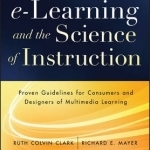
E-Learning and the Science of Instruction: Proven Guidelines for Consumers and Designers of Multimedia Learning
Ruth C. Clark and Richard E. Mayer
Book
The essential e-learning design manual, updated with the latest research, design principles, and...

Mobile Electrician
Productivity and Reference
App
Basic electrical calculations on your mobile Mobile Electrician is a simple and powerful collection...

the Urbane Forager: Fruit & Nuts for Free
Book
"The perfect book for anyone wanting to launch themselves into foraging...without swapping their...
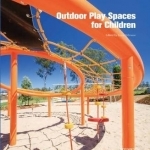
Outdoor Play Spaces for Children
Book
This detailed book examines key drivers in best play space designs. High-quality, integrated play...

Lonely Planet's Guide to Travel Photography
Book
Lonely Planet: The world's leading travel guide publisher The best-selling Lonely Planet's Guide to...
LeftSideCut (3776 KP) rated Resident Evil (2002) in Movies
Oct 28, 2020
...it's a terrible film, it's a shitty horror, and Anderson should just keep away from beloved franchises forever. I actually actively hate most of his films (have I mentioned this before?).
The big gaping issue with Resident Evil is it's characters and screenplay. The characters are a collection of edgy shitbags who spout one liners every two seconds and are just ripped straight from the "cliché action bastard handbook". It's difficult to care about any of them. I understand that Alice (Milla Jovovich) goes on to lead the entire franchise, but in the first entry, she hardly does or says anything, and as such, the audience doesn't get much of a chance to bond with her before the credits roll.
The script is just eye rollingly cringey. Every single line is either a "witty" quip, or lazy exposition and it becomes tiresome very quickly.
Some of the effects are ok - the zombie dogs look pretty gnarly, but The Licker (one of the only concrete connections to the game series) is brought to life with some of the worst CGI I've ever seen. To say it's aged badly would be an understatement, as I remember it looking dodgy AF back in 2002 when I was a humble 14 year old. Other than that, the whole film has that awful early 2000s aesthetic (The Matrix truly has a lot to answer for) and the inclusion of obnoxious breakbeat music cues that everyone was obsessed with at the time is the cherry on the mouldy cake. Ugh.
It's not all terrible... There are a couple of memorable set pieces, and the film manages to be somewhat entertaining here and there, but overall, Resident Evil is another garbage pile video game adaption, and the fact that George Romero wrote an unused screenplay that was much closer to the first game (and was poised to direct!) just rubs salt in this horrible festering wound left behind by Paul WS Anderson's Resident Evil. Hate it.
This book is for you.
The ten decisions (and ten lies exposed!) are so straightforward that they totally change your thinking. It's blunt, clear, easy to read, and divided up into chunks that are easy to swallow (although I had no problem tearing through several chunks at a time because of how clear and understandable it is).
Here are 5 reasons why this is a great book for individuals and small groups:
It comes from someone who has not only counseled people with problems, but someone who has been through emotional and spiritual pain himself. He understands what you're thinking and feeling, and he has a way of writing it that everything makes sense.
It is extremely biblically founded. It's not just quoting a few verses and most of it psychology… It's all straight from God's word.
The new version has a workbook built right into it. There are journaling places, Bible verses to look up and relate back to the chapter, and exercises to complete (individually, or as a group, depending on your situation).
It can be used as a devotional, or as a small-group handbook, because everything in here will apply to every small or large problem you have.
I know this is really random, but there are decent sized margins and good space between the lines. This makes for good annotating and note taking. I don't know about you, but all my non-fiction books—especially God books—have writing all over them. It annoys me when I don't have space to write my thoughts in the book. There is space in this one.
All in all, I encourage you to grab this book. It's excellent and I love it, and have been using it for my personal Bible study.
Content/Recommendation: Some of the stories used for examples included in this book are about very…mature topics. I would recommend ages 14+, and if used for anyone younger than that, maybe a parent or small-group leader to guide the younger students and explain certain things, or assign only specific readings. That being said, there is nothing graphic or offensive. In my experience, however, some young teens are just not ready for certain content. As always, this is only a personal recommendation.

Zen Studio meditation for kids
Education, Health & Fitness and Stickers
App
Zen studio is a unique geometric finger painting app designed to help children relax and focus. It...
